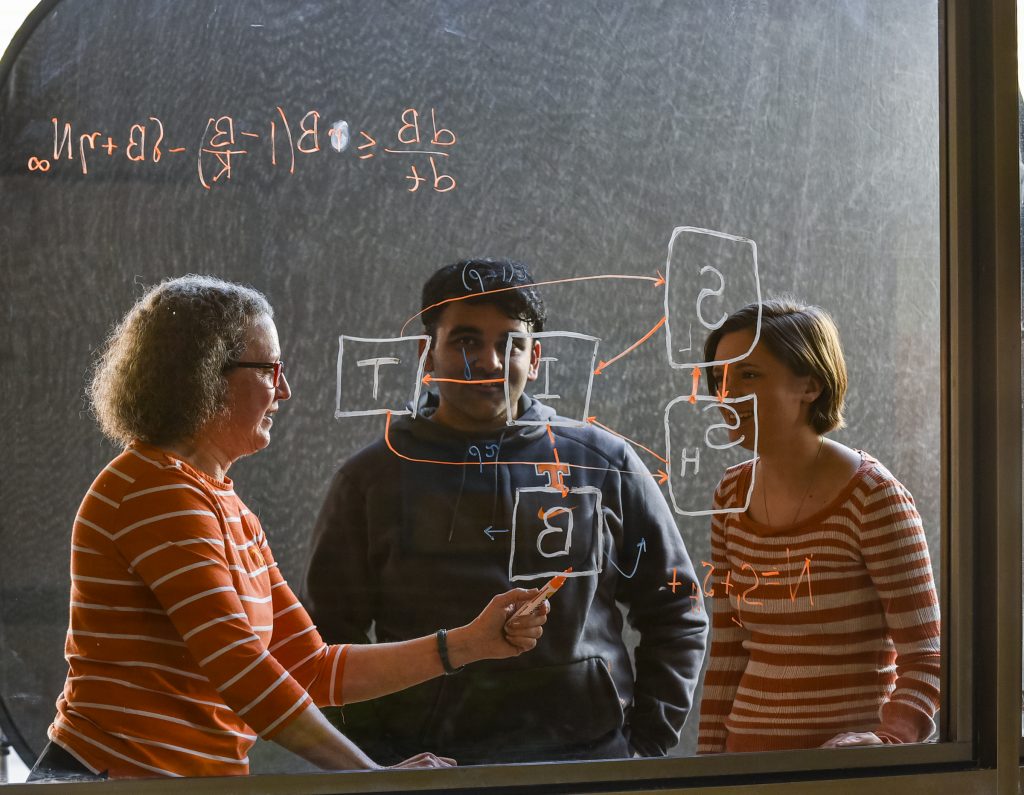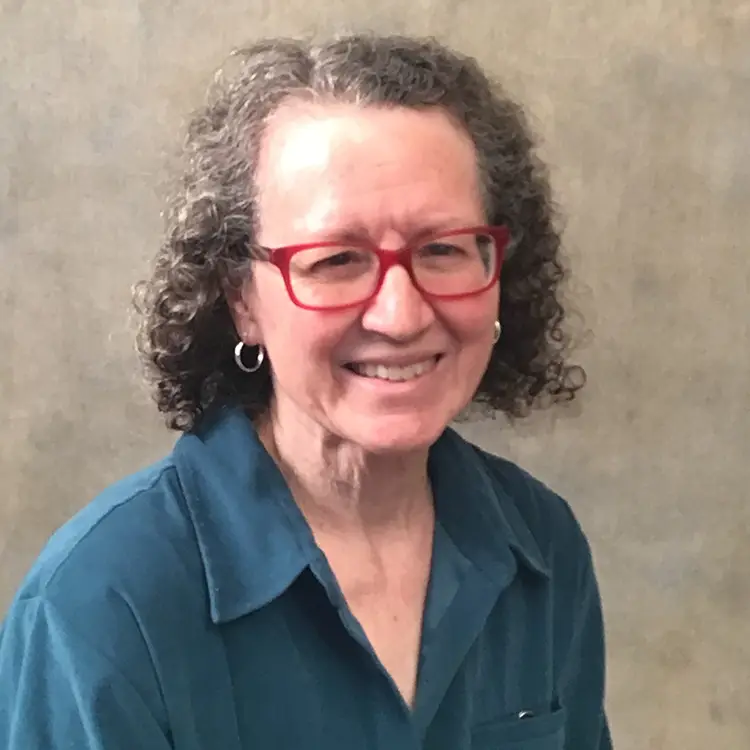Lenhart Delivers Gibbs Lecture

Suzanne Lenhart’s achievements in applied mathematics were highlighted this year with her invitation from the American Mathematical Society (AMS) to deliver the Josiah Willard Gibbs Lecture.
Her speech to an international audience on January 4 at the Joint Mathematics Meetings in San Francisco—the largest math conference in the world—focused on the impact of math in natural systems management.
Lenhart’s research involves differential equations and optimal control of biological and physical models, especially population and epidemiological models. Currently she is working on infectious disease models and applications in natural resources.
During the Gibbs Lecture, she showed the power of mathematical models to inform management in ecological systems, from wildfire controls to choosing therapy for patients with Alzheimer’s disease. In the area of climate change, for example, predictive models showing the impact of rising temperatures on the hatchlings of loggerhead sea turtles can guide conservation plans.

Lenhart joined the faculty of the University of Tennessee, Knoxville, in 1981 and has been named a Chancellor’s Professor and the James R. Cox Professor of Mathematics. She also was a part-time research staff member at Oak Ridge National Laboratory from 1987-2009.
Her leadership in the Department of Mathematics includes 15 years as director of the Research Experiences for Undergraduates (REU). She also served as associate director for education, outreach, and diversity of the National Institute for Mathematical and Biological Synthesis (NIMBioS) from 2009-2021 and organized the summer Research for Undergraduates program.
Lenhart is a fellow of AMS, the Society for Industrial and Applied Mathematics, the American Association for the Advancement of Science, and the Association for Women in Mathematics. She served as AWM president in 2001-2002.
She has organized outreach efforts to several middle and high schools and teacher workshops and served as co-principal investigator on a research collaboration with students and faculty in southern Africa, funded through the National Science Foundation.
Lenhart has been the research advisor for 37 master’s students, 33 PhD students, and 15 postdoctoral candidates. “I love teaching and collaborating on research,” she said. “I enjoy advising PhD and master’s students.”
AT UT, she has mentored women, students with disabilities, those who are racial or ethnic minorities, and students from disadvantaged socioeconomic backgrounds.
“My mentoring activity has been rooted in my personal experience as a woman, coming from a low-income household led by my mother,” Lenhart said. “As my career developed, I learned more about access and inclusivity, which led to deeper involvement with programs about increasing opportunities and improving equity.”
“Our department has strong diversity in the faculty now, and there are many more graduate students,” she said. “A variety of backgrounds and viewpoints enables us to serve a wide spectrum of graduate students.”
Over the past century, the notable mathematicians who have delivered the Gibbs lecture include Albert Einstein, Robert May of Oxford University, Cathleen Morawetz of New York’s Courant Institute of Mathematical Sciences, and Ingrid Daubechies from Princeton University.